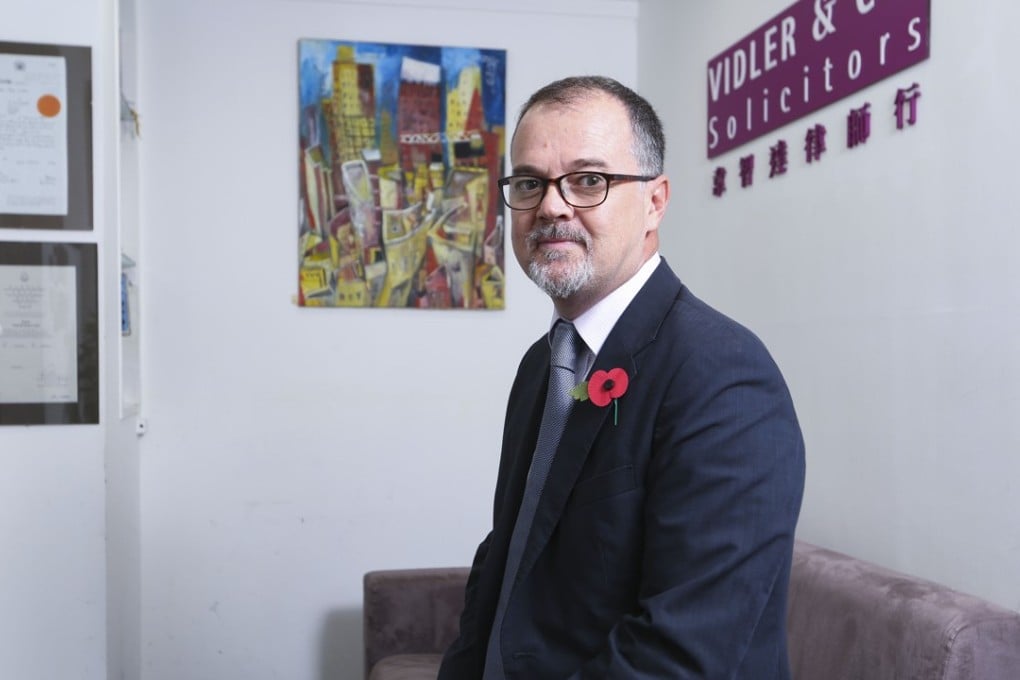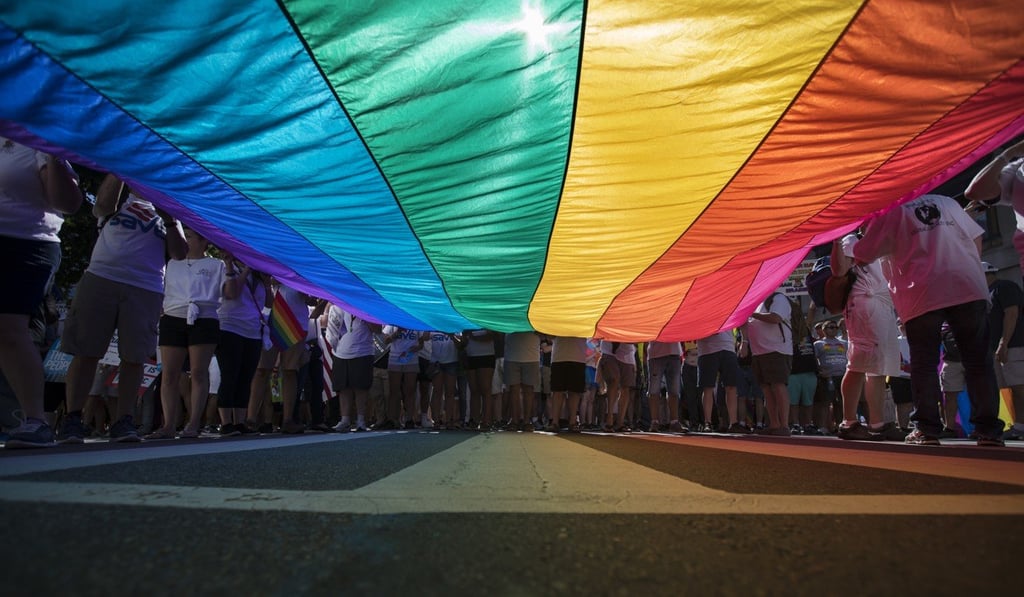Champion for LGBTI issues, Hong Kong-based lawyer seeks to give voice and power to the little guy
Michael Vidler describes his relentless battle against discrimination in the city

In September, a British lesbian known as QT won a landmark appeal against the Immigration Department’s refusal to grant her a spousal visa. The government has since appealed to the city’s top court. Hong Kong decriminalised homosexuality in 1991 but does not recognise same-sex marriage. QT’s lawyer, Michael Vidler, characterised the Court of Appeal win as a “landmark judgment” for the LGBTI community.
The 53-year-old Briton travelled to Hong Kong in the early 1990s with no intention of staying. However, 25 years later, he is one of the city’s top human rights defenders. In 2003, he set up his own practice, Vidler and Co, giving him “more freedom” to focus on cases that he found interesting: issues of discrimination.

In 2006, Vidler challenged the age prohibiting men from engaging in gay sex. He argued it should be changed from 21 to 16 – the same as for heterosexuals – through a case involving Hongkonger Billy Leung.
In 2013, the lawyer gained the right for a transsexual woman, “W”, to marry her fiancé. All three cases were significant stepping stones towards cultural acceptance and constitutional change in the city.